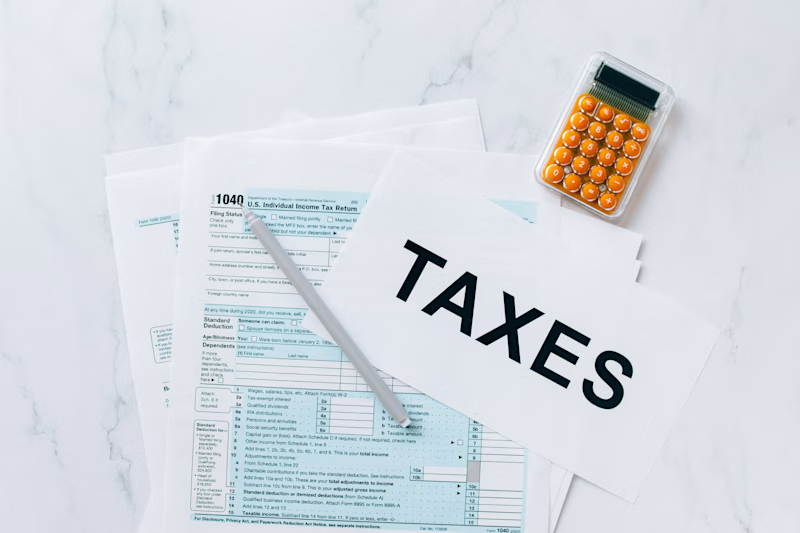Can I save my way to a million dollars?

Helen Truter
Blog Writer
Content Writer
Google Docs
This a more serious piece that I wrote about saving and investing wisely.

To be a millionaire, you need to have a million dollars in the bank. That is the definition of being a millionaire.
Sounds simple, right!?
But what does it take to actually save that much money?
There are many things you can do to reach 1 million, but if you are wondering: “Can I save my way to a million dollars?” then this is the perfect blog post for you!
Why Should You Want to Save A Million Dollars?

Don’t you just hate the saying “money isn’t everything?”
Well, if money isn’t everything, then why do you need it for everything?
Sure, there are more important things in life, we all know that. But if it is financial freedom that we seek, we will have to take money more seriously.
Saving money can provide a safety net for when emergencies happen or when your budget gets tight.
It is important to save money to prepare for the future. It can help you get out of debt, or even retire sooner than age 65 if this is your dream.
How Can I Get Started Saving Money?

I could start with the obvious and frivolous ways of saving money:
cut down on your takeaway coffee,
stop impulse buying,
eat out less,
But we both know it will take more than that to get to reach 1 million.
The best way to start saving money is:
You already have the goal of saving $1,000,000, but when do you want to reach this amount?
Do you plan on retiring with 1 million?
Make realistic, monthly goals that suit your lifestyle.
2. Create a budget and stick to it
Sticking to the budget may seem obvious, but people who are looking to build their nest eggs need to know that there are sacrifices that need to be made.
This may look like eating out less, going to work using public transport, cutting back on extra, unnecessary expenses, etc.
3. Start small
You don’t have to make major changes overnight. Just start small and simple. Don’t tell yourself that you will never buy takeaway coffee again.
Instead, if going out for coffee every day costs $5, try cutting back to only going out once a week and using the $5 saved each week to add to your savings account.
4. Compare bank accounts
What type of account do you need?
What features are important to you?
What is your budget?
Do you need an account that has no monthly fees or one that will help you save more?
All these questions should be answered before deciding on an account.
5. Open the right bank account for you
If you want to know how to save money, you must find the best bank account for your needs.
If you have a hard time-saving money, you might not be working with the right bank account. There are many different accounts out there that are specifically designed for saving money.
If you have an account with a bank that pays interest, the more money in your account, the more interest you will earn.
6. Use the bank account
This sounds a lot like “creating a budget and sticking to it,” but the most important part is to actually put money into this savings account.
If you actually want to build wealth, you need to be disciplined.
With all that being said, you could combine all the saving efforts that you possibly could, but the average person will not be able to rely on savings alone. This is why it is important to start investing your savings wisely.
Investing Your Way to $1,000,000

Emergency Fund
No matter what your goals are for your savings plan, or what your retirement plan is, the first thing you should do is build an emergency fund.
This will help you in the event of an unforeseen event like a job loss, medical emergency, or natural disaster.
To start saving for an emergency fund, set aside a small amount each month and gradually increase the amount as time goes by.
Investing
Once you have set aside enough money for emergencies, you can finally start saving for retirement by investing in a 401k or IRA.
If you want to save more money than your employer matches in your 401k, then open up an additional IRA account and contribute that amount on top of what you are already saving through your employer's plan.
Compounding
I’m sure we have all heard a personal finance guru say: “when it comes to compound interest, the sooner you get your money invested, the better.”
Funding a 401(k) and/or an IRA early on in life means you will be contributing less money overall. In fact, you will actually have significantly more than the person who started later AND contributed more money.
You’re probably wondering if it will really make a huge difference if you start later?
Imagine this: If you deposit $3,000 per year in a Roth IRA beginning at age 23 and earn an average annual return of 8%, you will have saved $985,749 by age 65.
This is the power of compounding.
Saving 1 million dollars isn’t that far out of reach if you’re able to make a few extra contributions here and there. Conveniently, a lot of your earnings will be interest. Your $3,000 contributions alone only add up to $126,000.
Now, suppose that you start contributing 10 years later, when you are 33 years old and earning much more, meaning you will probably be able to contribute more.
With time not being on your side anymore, you contribute $5,000 per year. You have the same goal to retire at 65 and receive the same 8% return.
Only now, your compounded earnings don't have those extra 10 years to grow.
By the time you reach 65, you will have saved $724,753. This is by no means little, but not only did you end up with less, but you also had to contribute more to get there.
Deductibles can be your best friend

If you are submitting your own taxes, you might be losing out!
If you're not educated on taxes, you might not be taking advantage of all the deductions available to you.
Yes, I know we are talking about saving money here, and tax professionals can be costly, but it just might be worth it.
If you still insist on submitting your own taxes, try to educate yourself on deductibles and what items can be regarded as deductibles.
You can’t drive your way to a million dollars

I completely understand that some people love their luxury vehicles, and there is absolutely nothing wrong with purchasing a luxury vehicle. However, people who spend an inordinate amount of their incomes on luxury vehicles are doing themselves a great disservice.
If you did not know, this asset depreciates in value rapidly.
A general rule is that a new car loses 15% to 20% of its value per year. That means that a two-year-old car will be worth 80% to 85% of its purchase price. After that, a three-year-old car will be worth 80% to 85% of its value at 2 years.
Final Thoughts

The bottom line to the question: “Can I save my way to $1,000,000?” is yes, but most people need to save up over time. You don't have to live frugally to build a solid nest egg and retire comfortably. If you start early, spend wisely, and save regularly, you can achieve your million-dollar goals.
2022


